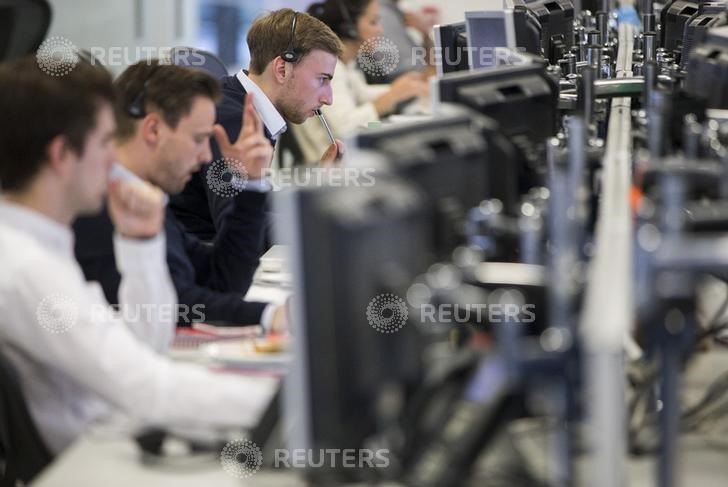Stock market today: Nasdaq closes above 23,000 for first time as tech rebounds
* Defensive plays lead gains among major sectors
* Auto stocks worst performers in the region
* German GDP growth at weakest since 2013, stocks down
(Updates to close, adds comments)
By Ambar Warrick
Jan 15 (Reuters) - European shares ended flat on Wednesday
as investors held back from making any big bets ahead of the
signing of a Phase 1 trade deal between the United States and
China.
The pan-European STOXX 600 index .STOXX closed 0.01%
higher after remaining range-bound for most of the day.
Defensive plays led gains, with the utilities .SX6P ,
healthcare .SXDP and food & beverage .SX3P sectors
outperforming.
U.S. President Donald Trump and Chinese Vice Premier Liu He
will sign an initial trade deal on Wednesday that will roll back
some tariffs and see China boost purchases of U.S. goods and
services. The pact is expected to help defuse an 18-month conflict
between the United States and China, the world's two largest
economies. The fine print on the deal is yet to be published.
"Clearly markets are waiting for the details of the Phase 1
deal," said Teeuwe Mevissen, senior market economist at
Rabobank.
"Indeed, if you look at markets right now, they are really
taking a wait-and-see approach. Looking ahead, the focus will
slowly shift towards trade relations between the U.S. and the
EU."
Talks between EU and U.S. trade representatives in
Washington this week will be in the spotlight, given the
strained relations between the two over U.S. tariffs and
aircraft subsidy disputes. Dutch semiconductor supplier ASM International ASMI.AS
jumped 8.6%, to the top of the STOXX 600, hitting a record high
after it reported a strong fourth-quarter order intake.
Automobile stocks .SXAP were the worst performers in the
euro zone, shedding 1.7%.
German car parts maker Hella GMBH HLE.DE extended losses
to a second session after it posted lower first-half earnings
and warned that a strong market recovery was unlikely.
Germany's main stock index .GDAXI fell about 0.2% after
the EU's biggest economy marked a GDP growth of 0.6% in 2019,
the weakest expansion rate since 2013.
